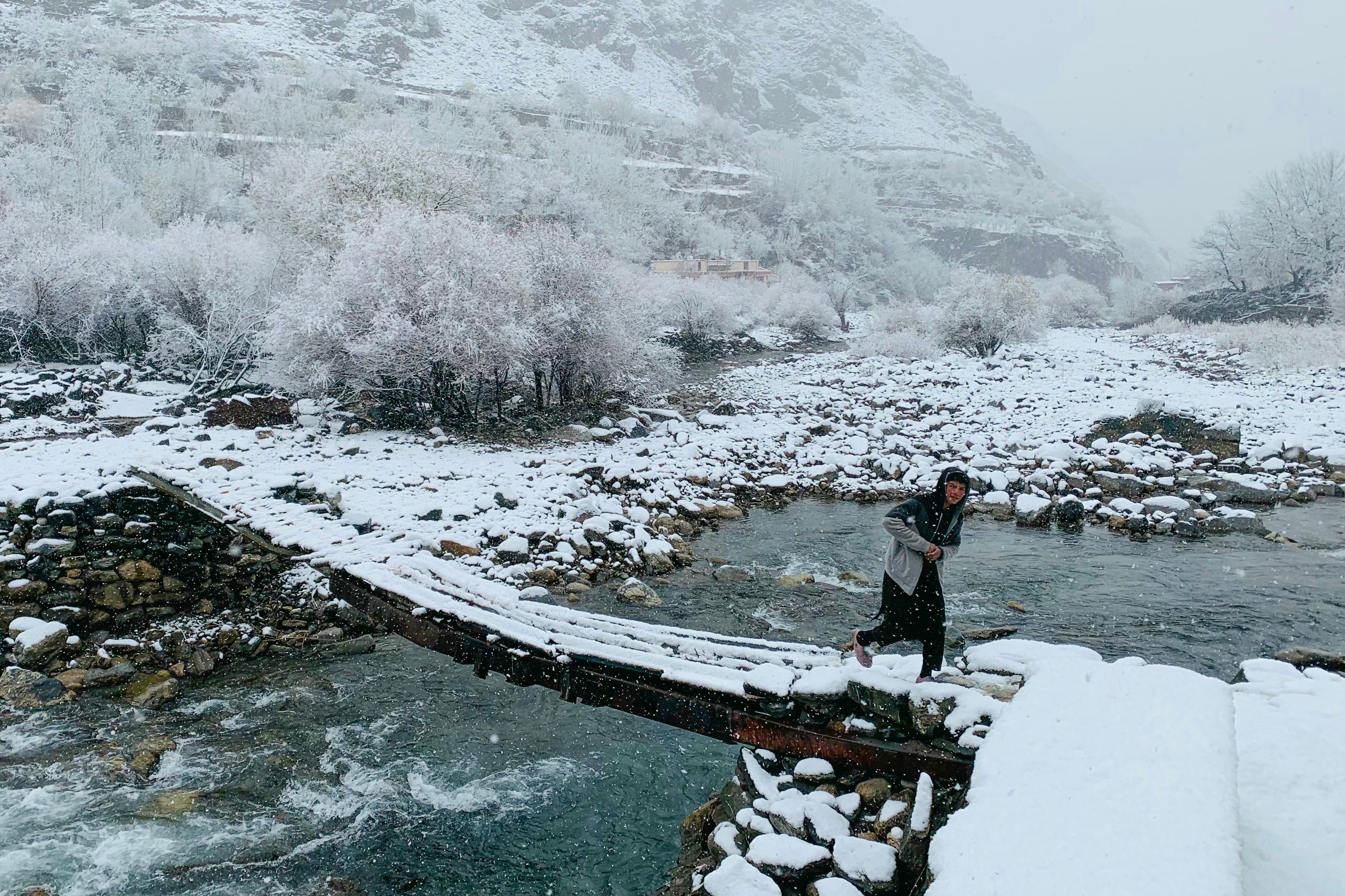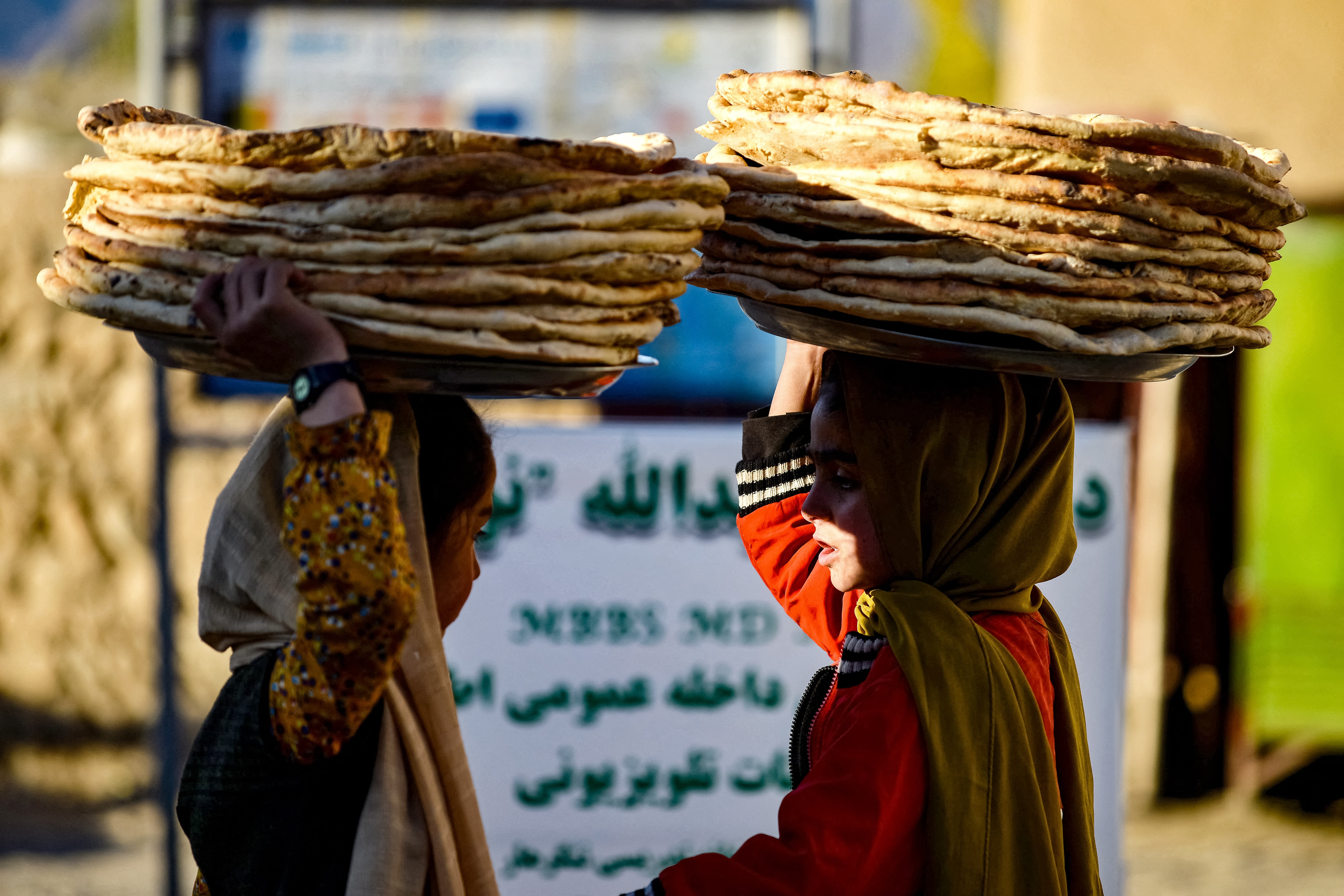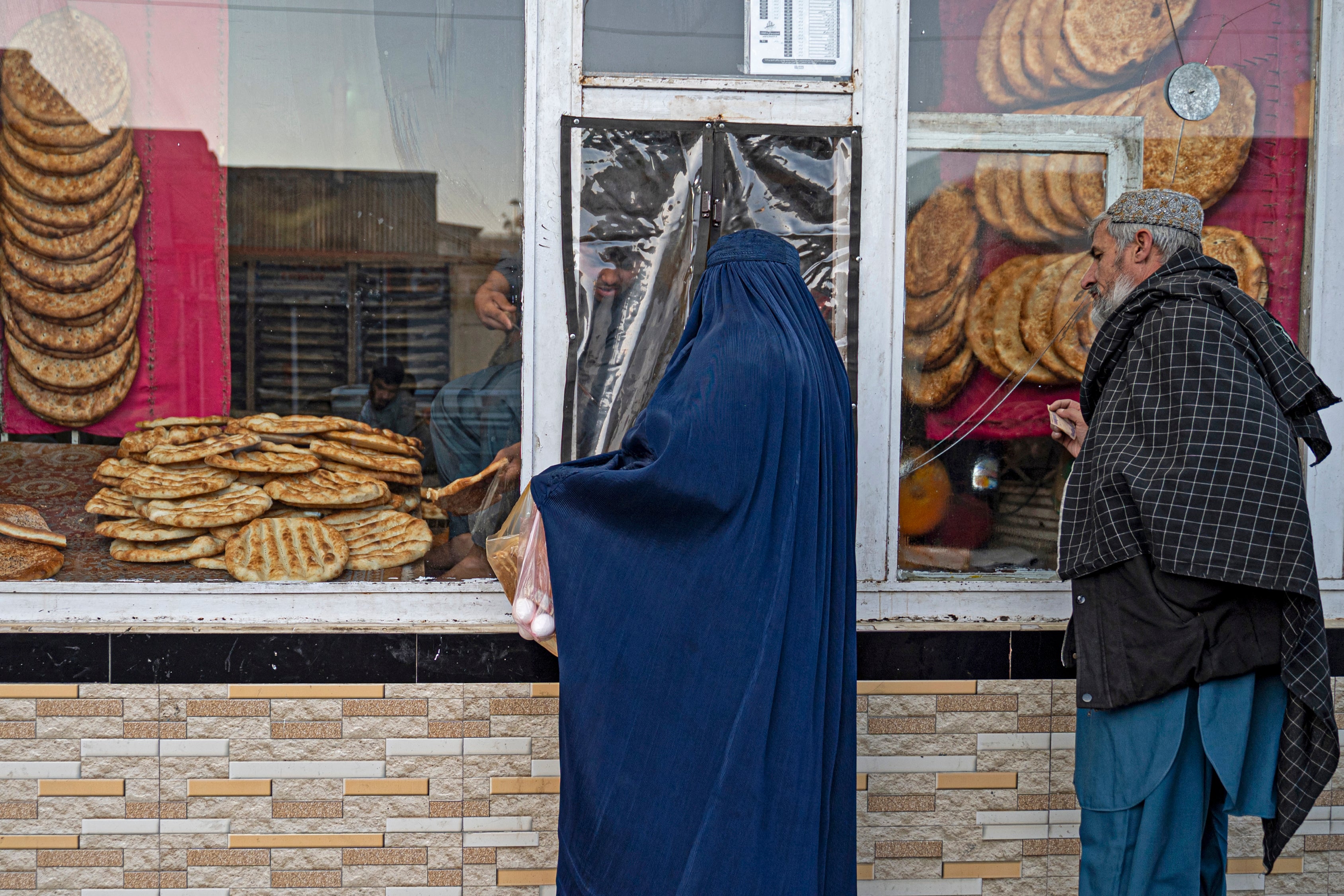At least one in three people in Afghanistan will face severe food insecurity this winter as the war-battered nation faces crisis or emergency levels of hunger, aid agencies have warned.
Children in particular will suffer dire survival conditions over the next three months, according to a forecast by the World Food Programme (WFP) and Save the Children.
“Winter is when hunger bites hardest in Afghanistan and WFP expects nearly 15 million people or nearly a third of the population of Afghanistan to be in need of food assistance for survival,” Philippe Kropf, the agency’s spokesperson, told The Independent over the phone from Afghanistan. “Next year, an additional 570,000 children are expected to become malnourished as compared to this year. We expect a total of 3.45 million children to be malnourished in 2025.”
According to another assessment by Save the Children, more than half of Afghanistan’s population, about 24 million people, will be in dire need of humanitarian assistance, like cash and food supplies, to avoid slipping into poverty and food insecurity in the coming months.
“As winter arrives and temperatures drop, families in some parts of Afghanistan are having to make agonising choices about what to prioritise – food, heating or warm clothes for the children,” the nonprofit’s country director in Afghanistan, Arshad Malik, said. “One family said that they are worried about how they are going to survive the winter and make sure their children even have just bread to eat.”
Afghan children are reeling from the devastation caused by drought, floods, displacement, and high food prices. Nearly 6.5 million children, or 30 per cent, are facing crisis or emergency levels of hunger, Mr Malik said.
“One child told us that he didn’t have any warm clothes – until they were provided by Save the Children – and was having to share socks with his siblings,” he told The Independent.

Mr Kropf said the WFP will require $787m across all of its programmes over the next six months to ensure vulnerable families in Afghanistan do not succumb to starvation and poverty.
Nearly 16 million people across 171 districts are listed in the high priority category for winter support provided by humanitarian agencies.
Around 43 per cent of Afghanistan is expected to be highly impacted by this winter, Save the Children said, while 56 per cent will be moderately affected and need assistance as well.
In addition to causing food scarcity, the cold weather exacerbates health risks. Millions of Afghans face temperatures that could weaken immune systems and heighten susceptibility to respiratory infections, Mr Malik said.

As food prices tend to rise in winter, millions of Afghans, particularly children, will face shortage of nutritious food and, thereby, a higher risk of acute malnutrition, he added.
The problem is compounded by the absence of a functional economy under the Taliban as well as by snow blocking roads, hindering the delivery of aid and cutting off many communities in the country’s remote areas.

For vulnerable Afghans to pull through this winter, the Asian country needs at least $1bn in aid, according to the UN Office for the Coordination of Humanitarian Affairs.
The international community is yet to meet the needs of humanitarian funding, however, according to data from Save the Children.
“Although humanitarian aid has been a lifeline to Afghan communities, the humanitarian funding appeal for 2024 has received only 37.5 per cent of requested funds as of 27 November, leaving a funding gap of 62 per cent,” Mr Malik said.
The Taliban government has not publicly announced any measures to address the challenges of the winter season.







